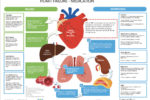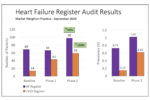Well, how fast things change! The latest figures show that a massive proportion of practice nurses and nurse practitioners are going to retire in the next few years—me included, I guess. I am very aware that this exodus is already starting to have an impact on primary care, as I am receiving requests for advice from brand-new practice nurses, who may be established nurses but are not general-practice prepared. This is scaring me and should frighten everyone else.


























